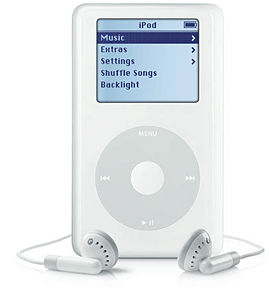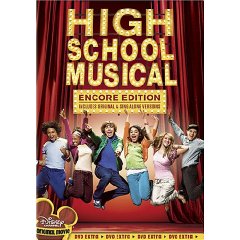ISMIR, the annual Music
Information Retrieval conference is just a week away. I'm really
looking forward to it. It is always a great learning experience, a
super opportunity to meet lots of energetic, and very smart people that
are passionate about music. This year I'll be busy too. I'm
presenting with Oscar a music recommendation tutorial,
two poster sessions (Thierry is doing all the hard work on one of
them), and I am a chair for the session on recommendation. This
will be only my second time acting as a session chair. At last
year's ISMIR I learned about what my duties are as a session
chair. There are really just two things: make sure that the
speakers end on time, and make sure that during the Q&A after a talk
that if no one else asks a question that you ask one. Apparently, every
speaker needs at least one question to feel fulfilled as a
speaker. Easy enough, end on time and ask a question if needed.
It
was in my role as session chair that I had my worst ISMIR moment.
I was doing fine making sure that the speakers ended on time (even when
we had to swap speakers around when one chap couldn't get his slides to
appear on the projector). However there was one speaker who gave a
talk about a topic that I just didn't understand. I didn't grasp the
goal of the research, the methods, the conclusions or the
applicability of the research. All the way through the talk I was
wracking my brains trying to eek out an appropriate, salient question
about the research. A question that wouldn't mark me as the idiot that I
clearly was. By the end of the talk I was regretting my decision to
accept the position as session chair. I could only pray that
someone else would ask the required question and save me from
humiliating myself and insulting the speaker. The speaker
concluded the talk, I stood up and thanked the speaker, offered a
silent prayer to the God of Curiosity and then asked the assembled for
questions. Silence. Long Silence. Really long silence. My worst
nightmare. I was going to ask a question, but by this point I couldn't
even remember what the talk was about. It was going to be a bad
question, something like "Why do you find this topic interesting?" or
"Isn't Victoria nice?". Just microseconds before I uttered my
feeble query, a hand went up, I was saved. Someone asked a
question. I don't remember the question, I just remember the
relief. My job as session chair was complete, every speaker had their
question.
This year, I think I'll be a bit more comfortable
as a session chair. I know the topic of the session quite well
(recommendation), and I know the speakers too, but still, please don't
be offended if I ask you "why do you find this topic interesting?"
 I've
had my iPod for 2.5 years. Its a 4th generation, 40GB iPod. It is
just about filled with music and podcasts. I use it all the time,
probably more than any other device that I own (well, except for my
laptop). I use it more than my car, my TV and my phone. Even
after 2.5 years, the battery works just fine, I get about 8 hours on a
charge, which gets me through the day.
I've
had my iPod for 2.5 years. Its a 4th generation, 40GB iPod. It is
just about filled with music and podcasts. I use it all the time,
probably more than any other device that I own (well, except for my
laptop). I use it more than my car, my TV and my phone. Even
after 2.5 years, the battery works just fine, I get about 8 hours on a
charge, which gets me through the day. 